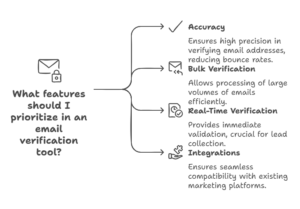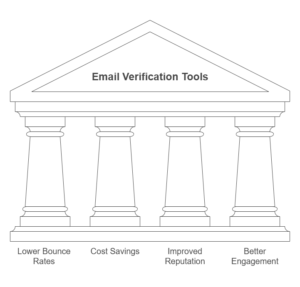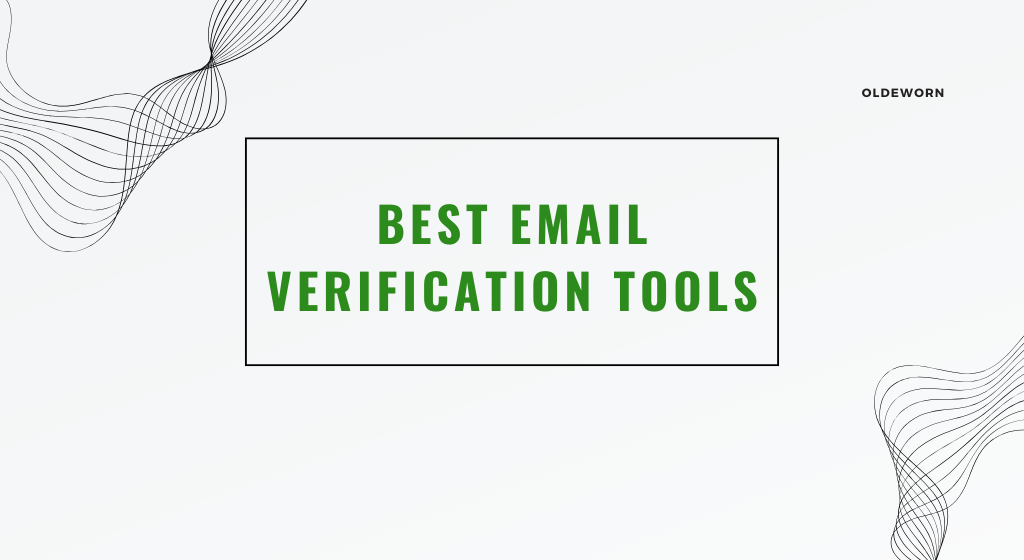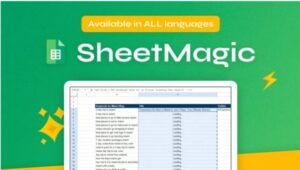Introduction
Email verification tools are the unsung heroes of digital marketing. If you’re sending emails without checking if they’ll even reach your audience, it’s like shouting into the void—ineffective and costly. These tools ensure your emails land in inboxes, saving you time, money, and the embarrassment of being flagged as spam.
In this article, we’ll explore the best email verification tools, why they matter, and how to choose the one that fits your business needs.
What is Email Verification?
Email verification is a process that checks whether an email address is valid, deliverable, and safe to send to. These tools typically identify invalid, fake, or disposable emails, helping businesses maintain clean email lists.
Key features of email verification include:
- Syntax checking.
- Domain verification.
- Detecting disposable or role-based emails.
By ensuring your emails reach real people, verification tools make email marketing more effective and cost-efficient.
Why is Email Verification Important?
You might think, “What’s the harm in sending emails to a few wrong addresses?” Here’s why email verification is crucial:
- List Hygiene: Keeps your list free from outdated or invalid addresses.
- Spam Trap Avoidance: Reduces the chance of being flagged by ISPs.
- Deliverability Boost: Improves your sender reputation and email performance.
In essence, email verification protects your business’s reputation while maximizing ROI on marketing campaigns.
Key Features to Look for in Email Verification Tools
Before you pick a tool, here’s what to check for:
- Accuracy: Look for tools with a high accuracy rate.
- Bulk Verification: Ideal for verifying thousands of addresses at once.
- Real-Time Verification: A must for collecting leads via sign-up forms.
- Integrations: Ensure compatibility with platforms like Mailchimp or HubSpot.
Investing in the right tool can save you headaches later.

Top 10 Best Email Verification Tools
1. ZeroBounce
ZeroBounce stands out for its accuracy and comprehensive reporting. It detects spam traps, abusive emails, and disposable addresses.
- Features: API support, real-time verification, and GDPR compliance.
- Pricing: Starts at $16 for 2,000 verifications.
- Why Choose ZeroBounce: Best for businesses seeking detailed insights into email performance.
2. Hunter.io
Known for its email-finding capabilities, Hunter.io also excels in verification.
- Features: Domain search, integration with CRMs, and an easy-to-use interface.
- Pricing: Free for 50 verifications/month; paid plans start at $49.
- Best For: B2B marketers.
3. NeverBounce
If speed is your priority, NeverBounce won’t disappoint. It’s perfect for bulk cleaning.
- Features: Instant bounce analysis and seamless integrations.
- Pricing: $0.008 per email or monthly subscriptions.
- Best For: Large email lists.
4. Bouncer
Bouncer’s user-friendly platform and reliable results make it a favorite among small businesses.
- Features: High accuracy, bulk verification, and API capabilities.
- Pricing: Starts at $0.003 per email.
- Best For: Small to medium-sized businesses.
5. VerifyEmail
This tool offers both free and premium options, catering to all budgets.
- Features: Simple interface, syntax checking, and domain validation.
- Pricing: Free for basic use; paid plans vary.
- Best For: Individuals and small teams.
(Remaining tools will be detailed in the next section.)
Clearout combines precision with powerful analytics, making it a top choice for marketers.
- Features: Advanced reporting, bulk validation, and GDPR compliance.
- Pricing: Starts at $21 for 3,000 verifications.
- Best For: Marketers needing detailed insights and secure verification.
7. EmailListVerify
This affordable tool provides a straightforward solution to clean email lists efficiently.
- Features: Real-time API, bulk processing, and disposable email detection.
- Pricing: Starts at $4 for 1,000 verifications.
- Best For: Budget-conscious businesses.
8. Mailfloss
Mailfloss simplifies email verification with automation, allowing for hands-off list cleaning.
- Features: Daily automation, integrations with popular email platforms, and real-time verification.
- Pricing: Starts at $17 per month.
- Best For: Businesses looking for automated solutions.
9. DeBounce
DeBounce offers accuracy and affordability, making it a favorite for small to mid-sized businesses.
- Features: Syntax validation, domain verification, and API integration.
- Pricing: Starts at $10 for 5,000 verifications.
- Best For: Businesses with medium-sized email lists.
10. Kickbox
Kickbox is renowned for its accuracy and robust API support. It’s ideal for marketers who prioritize deliverability.
- Features: Real-time verification, bulk email checking, and scoring email quality.
- Pricing: Starts at $5 for 500 verifications.
- Best For: Enterprises and growing businesses.
Benefits of Using Email Verification Tools
Using email verification tools isn’t just about reducing bounces; it’s about improving the overall effectiveness of your marketing. Here’s why they’re indispensable:
- Lower Bounce Rates: Invalid emails are filtered out, ensuring your campaigns reach active users.
- Cost Savings: Avoid unnecessary spending on failed email deliveries.
- Improved Reputation: A clean list keeps your sender score high, preventing blacklisting by ISPs.
- Better Engagement: Reach genuine recipients who are more likely to open and respond.
Investing in email verification tools is like keeping your car tuned—everything runs smoother and lasts longer.

How to Choose the Right Email Verification Tool for Your Needs
Finding the right email verification tool can feel overwhelming with so many options. Here’s a checklist to guide your decision:
- Assess Your Needs: Are you looking for bulk verification or real-time email checks?
- Evaluate Features: Consider accuracy, API support, and reporting.
- Test Free Options: Most tools offer free trials or limited verifications—take advantage of them.
- Compare Pricing: Ensure the cost aligns with your budget and verification volume.
- Check Integrations: Look for tools that seamlessly connect with your email marketing platform.
By doing a little homework, you can find a tool that fits your business like a glove.
Comparing Free vs Paid Email Verification Tools
Free tools can be tempting, especially for small businesses, but they come with limitations:
- Advantages of Free Tools:
- Cost-free for small-scale verification.
- Basic features like syntax checking and domain validation.
- Drawbacks:
- Limited accuracy and features.
- Not suitable for large lists or detailed analysis.
- Why Paid Tools are Worth It:
- Offer higher accuracy, speed, and additional features like spam trap detection.
- Better suited for businesses with significant email marketing needs.
Investing in a paid tool often pays off in terms of time saved and campaign success.
Challenges in Email Verification
While email verification tools are effective, they’re not without challenges:
- Complex Email Lists: Lists with multiple sources can contain duplicate or inactive addresses.
- Cost for Large Databases: Verifying massive lists can get expensive.
- Fraudulent Emails: Some tools may fail to detect sophisticated fake addresses.
To overcome these challenges, use a combination of tools and adopt best practices.
Best Practices for Email Verification
Maximize the benefits of email verification by following these tips:
- Clean Your List Regularly: Verify emails every 3-6 months.
- Avoid Buying Lists: Purchased lists often contain spam traps and invalid emails.
- Use Double Opt-Ins: Ensure subscribers confirm their email after signing up.
- Leverage Multiple Tools: Combine tools like ZeroBounce and NeverBounce for better results.
By adopting these strategies, you’ll keep your email marketing efficient and effective.
FAQs About Email Verification Tools
- What is the cost of email verification tools?
Costs vary; most tools charge per email or offer monthly plans. Expect to pay $5-$50 per 1,000 verifications. - Can I use a free email verification tool for a large list?
Free tools often have limits and lack advanced features, making them unsuitable for large lists. - How often should I verify my email list?
At least once every 3-6 months or before launching a major campaign. - Are email verification tools GDPR compliant?
Many tools like Clearout and ZeroBounce are fully GDPR compliant, ensuring data security. - What happens if I don’t verify my email list?
You risk high bounce rates, poor deliverability, and damage to your sender reputation.
Conclusion
Email verification tools are a game-changer for marketers, ensuring your emails reach real inboxes and drive results. From ZeroBounce’s detailed insights to Kickbox’s accuracy, there’s a tool for every need and budget. By choosing the right tool and following best practices, you can make email marketing your most effective channel.




